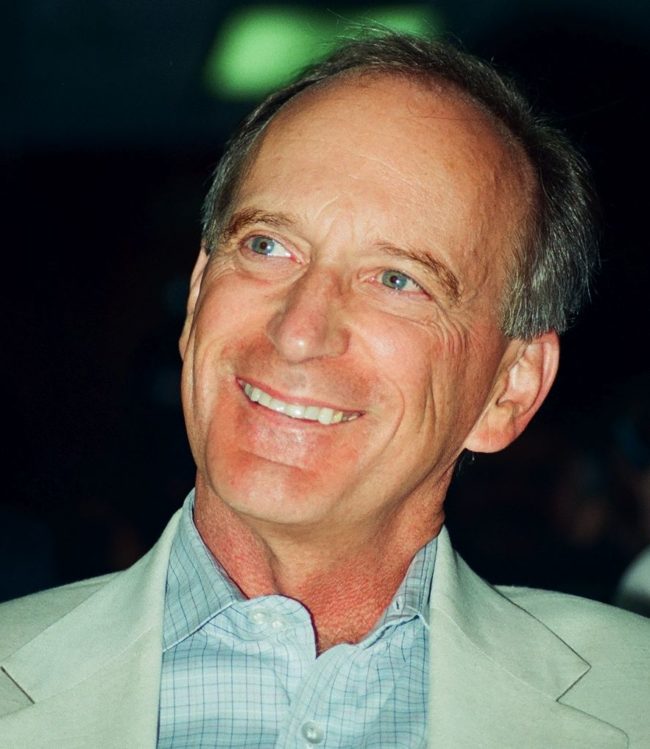Everyone on the planet woke up this morning with at least two things in common. First, all of us are mindful of the safe practices we need to follow to protect ourselves and others against infection—even if not everyone is observing these practices with the same rigor. And second, we are all celebrating Earth Day on its 50th anniversary, though this occasion too has been muted by the virus.
I caught up with Denis Hayes by phone last night at his home in Seattle. Hayes was the founder of Earth Day, a project originally conceived by Senator Gaylord Nelson as an environmental teach-in, which Denis transformed into a national event that attracted 20 million people, and, as described in Rolling Stone, “gave birth to the modern environmental movement.”
“Virtually overnight, burning rivers and vanishing birds were tragedies Americans cared about. And voted on. Thanks largely to the momentum created by Earth Day, the early 1970s saw the passage of the most important environmental legislation in U.S. history, including both the Clean Air and Clean Water acts.”
I’ve known and revered Denis for most of my adult life, dating back to the early years of Earth Day celebrations when he included my father, a Republican representative from upstate New York, among those he credited for helping him advance the environmental legislative agenda.
“I’m feeling nostalgic,” he told me, “ for the days when you could reach across the aisle and build coalitions. The Republicans of that era bore no resemblance to the crowd today. There were the Chuck Percys, the Romneys, the Ham Fishes, the McCloskeys, and Ed Brooke, the first African American Senator since reconstruction. Nixon and the Southern Strategy killed all that.”
Denis was characteristically understated on the eve of this historic anniversary, a signpost of the durability and global impact of the movement he helped to launch. He and his many colleagues affiliated with Earth Day have spent the past two years planning massive public events on behalf of responsible planetary stewardship—in St. Petersburg and Kolkata and on the mall in DC—all canceled by Covid-19.
I asked him about the impact of the virus on environmental advocacy. His first thoughts were, “it’s delicate, talking about the virus, when thousands of people are dying.”
He spoke without the rancor of the current public debate, and I’m not sure he even once mentioned the environmental wrecking crew currently installed in the White House during our conversation. Instead, he came at the subject obliquely. “One thing we’re seeing in connection with the virus is that not everything is a matter of opinion. Science is important, here are facts. There’s the WHO, the CDC, the NIH. There aren’t many of those kinds of institutions in the climate arena, and there is little enforcement. As terrible as this pandemic is, climate change will do much worse than the virus.”
About self-isolation and the pause, and their effect on people’s environmental views, his first thoughts turned to the outdoors, reflecting perhaps his roots in the Pacific northwest. “People see how quickly the streams and lagoons have come back, they’re amazed by nature’s restorative power.” But in the voice of the veteran activist, he added, “It’s tougher to make behavioral change stick.”
I asked him about possible long-term effects of self-sheltering. “When employers see how productive people are working at home, maybe they’ll allow workers to stay home one day a week, which will mean one day less commuting, one-fifth less fuel burned, one-fifth less parking, perhaps less junk food consumed.
“In northern Europe, people have already adopted the 30-hour work week, and a month of vacation, maybe we’ll discover the benefits of those policies during this period. People are discovering the pleasures of cooking, learning where their vegetables come from, eating organic and healthier.”
A question about making do with less struck a chord. “The key reason I originally got into this field was because of the obsession with growth. In nature, growth ultimately becomes a cancer. We need the equilibrium state, not just the growth state.”
Before signing off, he turned to basic principles. Inequality is a persistent obstacle to environmental progress and “we need to introduce a degree of equity we’ve never experienced before. That’s why it’s so important the Green New Deal has such a strong social justice component.
“We’re proposing to radically shift the energy basis of an entire civilization, we’re going to leave billions of tons of stranded carbon in the ground and abandon the burning of fossil fuels to embrace renewables. Our challenge is how do we do this and address the inequities that will inevitably result.”
You can read more about Denis Hayes and his vision of planetary stewardship in several of the articles that were published in connection with the 50th Anniversary of Earth Day found here: in The Washington Post, at AARP.org, at Elektrek, and Rolling Stone.
Hamilton Fish is editor of The Washington Spectator.




